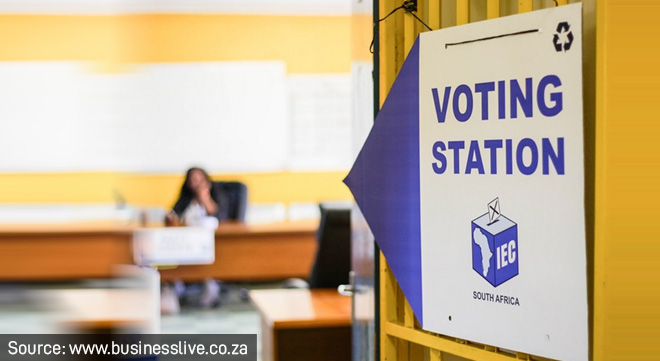If the general election is making you feel jittery, you are not alone. Globally, investors are feeling fearful. In a recent study, the top financial fears among investors were listed as higher costs, large and unexpected expenses, and taxes. Their top investment concerns were inflation, a recession, and market volatility.
“Over time, we’ve seen investors move between periods of being risk-on, where they are optimistic and gravitate to equities, and risk-off, where they are more fearful and flock to income and interest-bearing assets like cash and bonds. But switching between asset classes at inopportune moments can destroy value, especially if your decision is reactive and driven by short-term emotions,” says Nomi Bodlani, the head of direct and private clients at Allan Gray.
She reminds investors that equities have proved to be the best-performing asset class, beating inflation, and thereby one of the best ways to create wealth over the long term.
“Local equities have delivered 13% per year over the past 30 years, despite the many challenges in our country,” says Bodlani. “But we also know that this opportunity for growth comes with the risk of capital loss over shorter time periods. To benefit from this asset class, investors have had to weather volatility, move through their feelings of fear – particularly during times of uncertainty – and stay invested.”
Acting based on fear or greed requires us to predict what outcome we foresee as likely or certain, and this is where we can get in trouble. To illustrate this, Bodlani describes South Africa’s political and election-year history and intersperses it with how markets reacted. She uses the 2009 and 2019 election years as examples, comparing the total returns of the FTSE/JSE All Share Index and the MSCI World Index in rand terms.
The 2009 pre-election investment context was fractious, to say the least. Not only did the election follow hot on the heels of the global financial crisis (GFC) and South Africa’s first recession in the new democracy, but our soon-to-be president was facing criminal charges, and markets had returned -23% in 2008, with global markets down -17%.
Enter the election year, and despite all the uncertainty, local markets recovered, ending the year up 32%, while global markets delivered only 2%. In the four years that followed, the South African stock market achieved a 20% annual return on average (measured monthly over those 48 months), in line with what the investor would have achieved in global returns.
Fast forward to December 2017. Markets rallied strongly the day after Cyril Ramaphosa assumed the presidency of the African National Congress, with stocks rising and the rand and government bonds strengthening.
The National Assembly elected Ramaphosa president of South Africa in February 2018 when Jacob Zuma resigned. Citizens and investors were full of hope, with the new president seen as more business and investor friendly. However, this did not translate into attractive returns, with local markets returning -9% in 2018. The ANC won the 2019 election and re-elected Ramaphosa as president. The performance of the local market improved in absolute terms, delivering 12%, but underperformed global markets significantly.
Political shifts and markets don’t always correlate
Our worst fears, or hopes, do not necessarily impact markets in the way in which we predict. In the scenarios described above, political shifts had little to do with what transpired in the markets over meaningful periods; bigger forces were at play.
In 2009, South Africa fared better than other countries during the GFC and therefore outperformed global stocks. And in the periods that followed 2019, global tech stocks rallied, while pretty much nothing else did, resulting in South Africa underperforming global markets.
“In trying to avoid a single particular risk, we can overestimate the likelihood and/or impact of the scenario transpiring. Often, our predictions are at odds with what lands up happening in reality,” Bodlani says. This drives home the lesson that planning, rather than prediction, is a better strategy to adopt when it comes to investing.
“This is not to say we should ignore risks in the environment. Given the inherent uncertainty in markets, we need to make sure portfolios are positioned for a range of outcomes, rather than building for a single, hard-to-predict expectation. A good way to do this is through a multi-asset class fund, such as a balanced fund, which also invests a portion of its assets offshore.
“Balanced funds can invest in a range of assets. Having many tools in the toolkit allows portfolio managers to protect capital and achieve returns under different conditions. This makes these funds a good choice for investors who prefer to outsource their asset allocation decisions to a professional,” says Bodlani.




